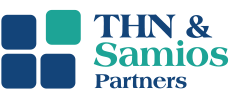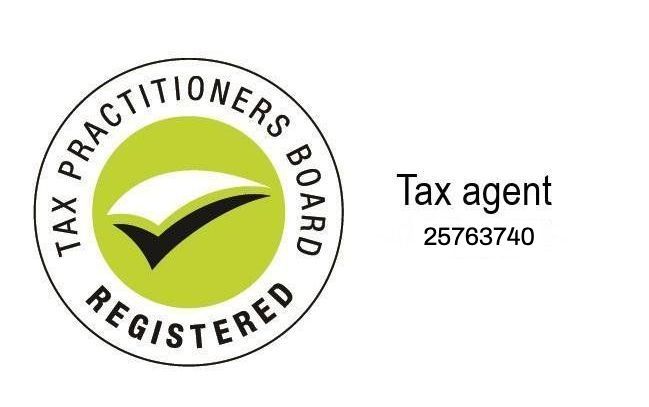Cash basis accounting vs accrual accounting
Vania Wang • October 8, 2020
Cash basis accounting vs accrual accounting
Cash basis accounting and accrual basis accounting are two methods of recording transactions. The crucial difference between the two systems is the time when the transaction is recorded. If you record the transactions when you receive/pay money, it is cash basis accounting. And if you record them when you raise/receive an invoice, it is accrual accounting.
We will explore both these methods in detail and consider how each method affects your business.
Cash basis accounting
This method recognises expenses when they’re paid and income when cash is received. This method does not track accounts payable or accounts receivable.
A lot of small businesses rely on cash basis accounting as it is straightforward and pretty easy to maintain. It is quite easy to identify when a transaction has occurred (the money has been received/paid either in cash or in/out of the bank. This means that there’s no need to keep a track of payables or receivables.
Cash basis accounting also helps in calculating how much cash a business has at any point of time; you can simply look at the bank balance and you know how much money you have at your disposal.
Furthermore, as transactions are recorded only when the cash is received/paid, the income is not taxed until it gets to the bank.
However, cash accounting isn’t accurate. It may show a business as profitable even though it has huge bills to pay. It isn’t helpful when it comes to making management decisions; there’s not much you can decipher from a day-to-day view of your finances.
Accrual basis accounting
Under accrual basis accounting, you record revenues and expenses as they are earned irrespective of when you receive/pay the money.
For instance, you will record income when a project has been completed rather than when you receive payment. This method is the most favoured one compared to the cash method.
The biggest benefit is that this method provides a more realistic picture of income/expenses, providing a long-term view of the business that cash accounting does not offer.
However, this accounting method does not tell much about cash flow; a business may appear to be highly profitable where in reality its bank accounts are empty. Accrual accounting in the absence of careful tracking of cash flow could have catastrophic consequences.
Accrual basis accounting requires a lot of work as you have to keep a track of invoices, not just the bank account. What’s more, you may have to pay tax on your revenue even before the customer actually settles the invoices.
Which system should your small business use?
To identify which method suits your business best, consider:
• The size of your business
• The complexity of your processes and business transactions
• Whether relying on an electronic system would make a difference
• Whether you have the time and resources for accrual accounting
Cash basis method works well for small businesses that do not carry any inventory. If your business maintains a lot of inventory, your accountant will likely recommend the accrual method.

If you own a thriving business, especially as a high-net-worth individual navigating growth, efficiency, and profit can be both exciting and overwhelming. You might already work with a business consultant or a financial advisor, but is your advisory team truly helping you unlock every opportunity? The rise of strategic business advisors is changing the game for business owners like you who want more than just “business as usual.” Understanding how strategic advice differs from traditional consulting will help you choose the right partner to propel your business and personal wealth to new heights. Business Advisor vs. Business Consultant: What's the Real Difference? At first glance, a business advisor and a business consultant might sound like they offer the same service. But when you look closer, their roles and value are distinct. A business consultant typically steps in for specific projects or problems. Think of them as specialists brought in to solve a challenge—like implementing a new software system, improving workflow, or launching a product. Consultants provide recommendations, often focusing on short-term improvements, process tweaks, or compliance needs. A business advisor, on the other hand, is your long-term partner. Their approach isn’t just about fixing a problem—it’s about setting your entire business up for sustained success. A strategic business advisor helps you clarify your vision, plan for growth, spot risks, and tie your business goals directly to your personal financial ambitions. Especially if you have complex assets or structures, the advisor’s goal is to help you achieve balance, prosperity, and peace of mind. How a Business Advisor Helps You Move Forward What do the best business advisors actually do? Their real value is in helping you see the bigger picture—beyond day-to-day operations. Here’s how a strategic business advisor supports you: Growth Planning: They help you identify opportunities for expansion, whether that's opening a new location, acquiring a competitor, or launching into new markets. Profit Maximisation: Advisors look to unlock hidden potential, reduce costs, and streamline operations to make your business more profitable—fast. Risk Management: You'll get help identifying and mitigating risks, protecting your assets and reputation along the way. Succession and Exit Planning: When it’s time to move on, a business advisor ensures you extract the most value from your business, whether through a sale, merger, or handing it down. Personalised Tax Strategies: Enjoy access to business advisory services sydney that integrate effective tax planning, ensuring you keep more of what you earn. In short, a strategic business advisor doesn’t just focus on your business—they bring your entire financial landscape into focus, aligning your business performance with your wealth-creation goals. What Do Business Advisory Services Include? If you’ve ever wondered what’s involved with business advisory services, you’re not alone. For high-net-worth business owners, today’s advisors no longer simply review financial statements or offer occasional advice. Instead, they offer a complete, integrated suite of services tailored to your unique circumstances. Business advisory services may include: Financial and Tax Strategy: Smart structuring is key to minimising tax and boosting cash flow. Advisors connect you with leading tax advice sydney so you pay only what you need to. Operational Reviews: Streamlining processes, improving efficiency, and identifying cost savings opportunities. Profitability Tracking: Identifying quick wins and long-term strategies to boost your bottom line. Wealth and Asset Protection: Shielding assets from unnecessary risks with proactive planning. Succession & Transition Planning: Ensuring a smooth handover when the time is right. Advisory services are particularly powerful for high-net-worth individuals. If you have multiple entities, complex investments, or a family business, customised support ensures your wealth is always working in your favour. The Strategic Business Advisor: Your Partner for Sustainable Success So, what is a strategic business advisor—and what sets them apart? A strategic business advisor goes far beyond the basics. They act as your business’s “co-pilot,” guiding you every step of the way rather than stepping in only when you call for help. Their support is future-focused and proactive, helping you anticipate challenges before they become headaches. For many high-performing business owners, partnering with a strategic business advisor in sydney is the fastest way to turn ambitious goals into reality. Key qualities that distinguish a strategic advisor: Holistic View: They see the connections between your business performance and personal wealth. Proactive Mindset: You'll get regular check-ins and forward-thinking advice, not just a year-end meeting. Custom Solutions: No cookie-cutter plans—everything is tailored to your goals, your industry, and your financial landscape. If you’re ready to grow, streamline, and maximise profit while protecting what you’ve built, a strategic business advisor will help you unlock your full potential. Choosing the Right Partner: What to Look For The advisor you trust should not only have deep expertise, but understand your unique ambitions as a business owner and wealth creator. Look for an advisor who: Has experience working with high-net-worth individuals and complex business structures Offers personalised solutions, not off-the-shelf plans Communicates proactively—so you’re never left in the dark Delivers measurable results through clear action plans Choosing wisely can lead to faster growth, stronger profits, and true peace of mind. Unlock Your Next Opportunity Having a strategic adviser by your side means you’re always ready to act, adapt, and win—no matter what the market throws your way. Whether you’re focused on expansion, optimising your tax position, or planning for succession, their tailored guidance ensures you’re never leaving money—or opportunity—on the table. If you’re questioning whether your current advisors are giving you the clarity and proactive support you deserve, now is the perfect time to rethink your approach. By partnering with the right team, you can turn your ambition into action and enjoy lasting success. Ready to get more from your business and your wealth? A strategic business advisor might just be the catalyst you need to unlock your best years yet.











